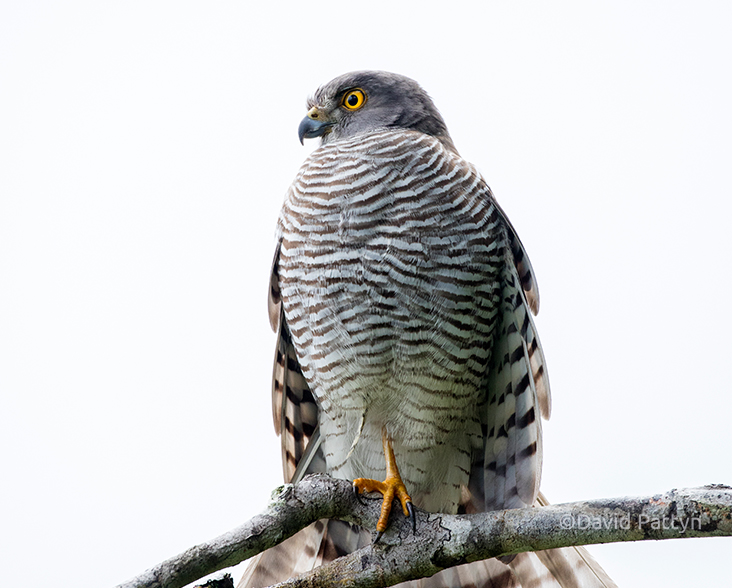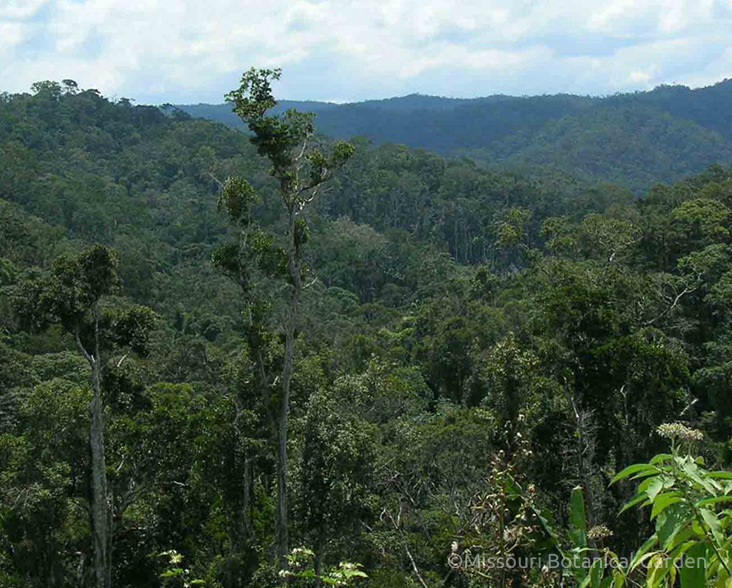Madagascar Sparrowhawk
Species Data
Class: Aves
Order: Accipitriformes
Family: Accipitridae
Scientific Name: Accipiter madagascariensis
IUCN Red List status: Near Threatened
DESCRIPTION
The Madagascar Sparrowhawk is a medium sized bird of prey. The feather colouration of this raptor can make it difficult to identify, as it is remarkably similar to Henst’s Goshawk as both exhibit grey back feathers and a barred pattern on the breast and neck. However, the smaller Madagascar Sparrowhawk can be identified not only by its size, but also by its disproportionately long middle toes. Young Madagascar Sparrowhawk may also be identified by a streaked pattern on their breast feathers.
BEHAVIOUR
The Madagascar Sparrowhawk is a versatile predator that hunts a diverse range of prey, including small birds, insects, frogs, lizards, rodents, and turtles. The majority of its diet, however, is comprised of birds and insects.
Similar to Henst’s Goshawk, the Madagascar Sparrowhawk nests in the high tops of large trees, in the fork between the highest branches. Eggs are often laid in clutches of three, with most eggs laid in November and hatching in late December and early January.


HABITAT
This species is endemic to Madagascar and is found in the humid, moderate, and dry forests found across the island. It only occurs in natural forest systems and is absent wherever human development or major changes in the landscape occur. It is restricted to altitudes of 1,500 metres and below.
THREATS AND CONSERVATION
Classified as Near Threatened, the Madagascar Sparrowhawk is likely experiencing a decline in population and range due to deforestation affecting Madagascar. However, due to the species’ shy and quiet nature, it is a challenge to understand the exact rate of decline, and the species may be more abundant than is currently thought. Regardless, the threats posed by forest clearance for agriculture and logging still pose a significant threat to their survival.
